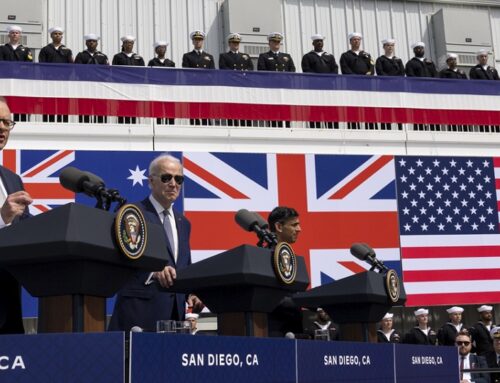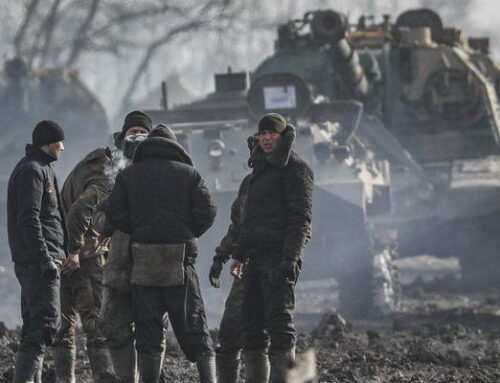 This past week, James Der Derian, Director of the Centre for International Security Studies (CISS) and Project Q, gave a series of presentations at the Danish War Museum, Copenhagen University (KU) and the Swedish Defence University (SDU).
This past week, James Der Derian, Director of the Centre for International Security Studies (CISS) and Project Q, gave a series of presentations at the Danish War Museum, Copenhagen University (KU) and the Swedish Defence University (SDU).
In Copenhagen, Der Derian presented alongside four other international experts at the first event of a year-long series, Futures of War, hosted by the University of Southern Denmark (SDU) and supported by the Carlsberg Foundation and the Velux Foundation. Speaking in the historic Danish War Museum, formerly the national arsenal of Denmark, Der Derian reflected on the emergence of ‘quantum wars’, in which diffused post-Einsteinian states of violence co-exist with Newtonian state-on-state classical wars.
Der Derian’s presentation investigated quantum wars in metaphorical and potential as well as actual and operational contexts, in which quantum computing, communications, control and AI eventually converge on the battlefield of tomorrow.
Starting with Clausewitz’ classical definitions of war – as “a duel on a larger scale”, “a forceful act to compel others to do our will”, and “a continuation of politics by other means” – Der Derian suggested that future quantum wars are already showing their face: “What if the essence of war, diffused and networked by ubiquitous realtime media, now lies firmly in an electro-magnetic, spectral phenomenology”?
Der Derian’s presentation linked the power of local and mass-global media to the emergence of quantum effects. He posited a new networked dynamic in which quantum technologies will have the capacity to oversee, foresee and if necessary pre-empt any potential threat in order to dominate a hybrid media and battle-space. Global supremacy, albeit of a temporary nature, might result from asymmetries in the development of quantum technologies. As such, quantum war takes on an “amorphous, spectral and highly volatile quality”, writes Der Derian, in which war that is “no longer delimited by national borders or justified by imminent threats.”
Noting the power of “networked modes of observation…to actually ‘produce’ new global conflicts”, Der Derian cautions that our own attempt to understand and anticipate wars through scenarios, simulations and exercises directly impact and even help to create the futures we predict.
Within this context, the phenomenon Der Derian refers to as quantum war “is defined by acts of observing highly affective images that enable as well as delimit new conditions of violence”; this, he argues, “becomes the continuation of politics by means of a networked global media”. As such, while classical war seems to be on the decline and quantum war on the rise, both forms exist in a kind of superpositional state. War is morphing, diffusing, and quantizing through its networked planning, execution and representation. Violence produced through this mode of war will continue to become increasingly entangled in a variety of platforms and screens at the hands of individuals and groups rather than states.
Given Der Derian’s interpretation, it is clear that our readiness for the future of war will necessitate a deeper understanding of the quantum potential. Ultimately, quantum technology will dually disrupt and interact with the mechanisms of war today to affect quantum wars tomorrow. While the face of war is shifting, Der Derian predicts that the global media will continue as a constant force in warfare. This he argues, will act as a vehicle to carry quantum war into our future.
 James Der Derian at the Danish War Museum, Copenhagen
James Der Derian at the Danish War Museum, Copenhagen
Der Derian gave two other presentations while in Denmark: the first, a workshop on SDU’s new research project, “The Aesthetics of Late Modern War”; and the second, a seminar, “Visual Diplomacy: Then and Now”, for KU’s ERC-funded project, Diploface, which explores the relationship between diplomacy, images and digital disinformation.
From Copenhagen Der Derian travelled to Stockholm, to present a research seminar at the Swedish Defence University on “International Security: The Case for a Quantum Approach”. He also screened a short film from his Carnegie research project, “Project Q: The Question of Quantum’.






Leave a Reply